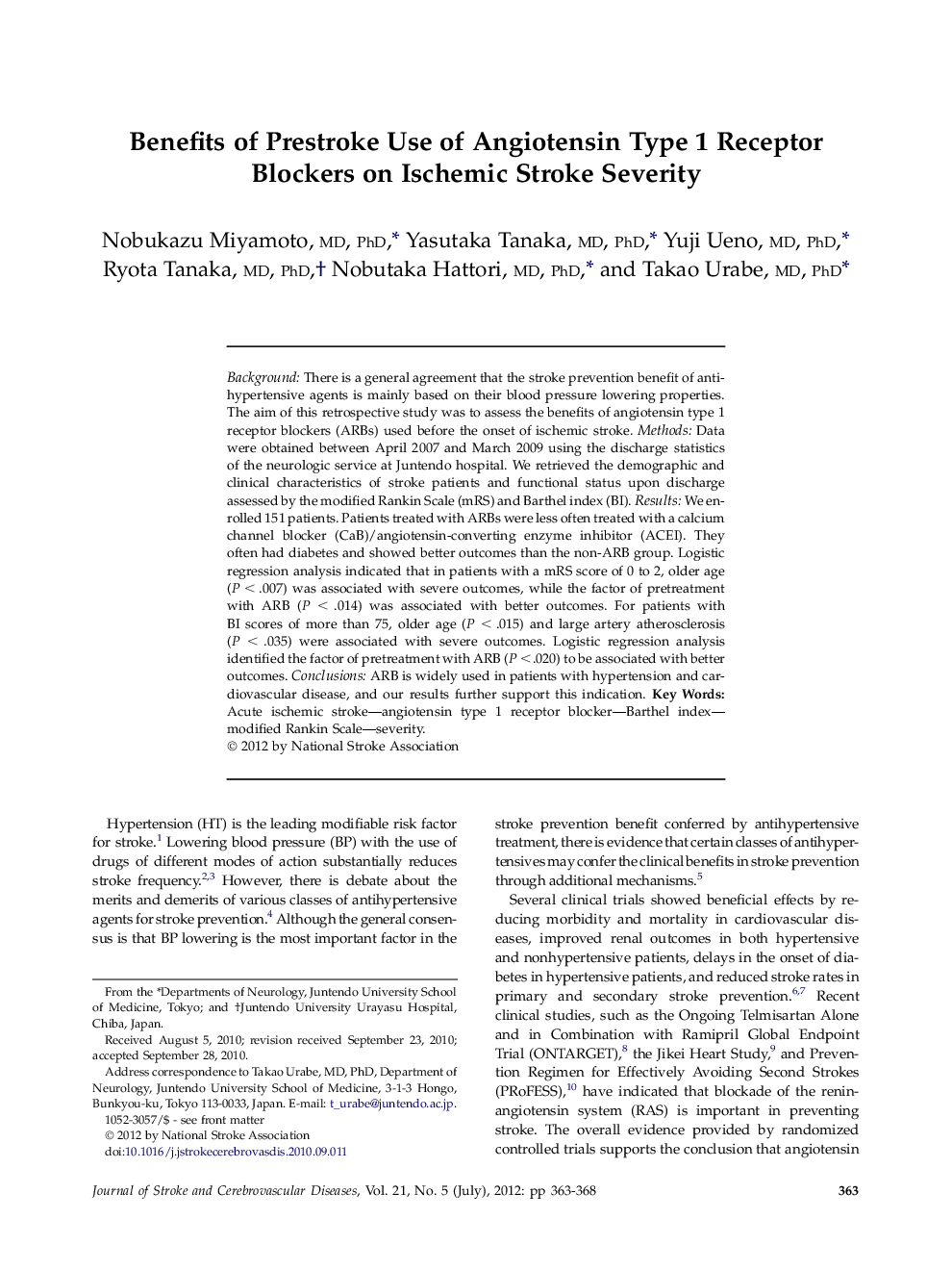| Article ID | Journal | Published Year | Pages | File Type |
|---|---|---|---|---|
| 2702628 | Journal of Stroke and Cerebrovascular Diseases | 2012 | 6 Pages |
BackgroundThere is a general agreement that the stroke prevention benefit of antihypertensive agents is mainly based on their blood pressure lowering properties. The aim of this retrospective study was to assess the benefits of angiotensin type 1 receptor blockers (ARBs) used before the onset of ischemic stroke.MethodsData were obtained between April 2007 and March 2009 using the discharge statistics of the neurologic service at Juntendo hospital. We retrieved the demographic and clinical characteristics of stroke patients and functional status upon discharge assessed by the modified Rankin Scale (mRS) and Barthel index (BI).ResultsWe enrolled 151 patients. Patients treated with ARBs were less often treated with a calcium channel blocker (CaB)/angiotensin-converting enzyme inhibitor (ACEI). They often had diabetes and showed better outcomes than the non-ARB group. Logistic regression analysis indicated that in patients with a mRS score of 0 to 2, older age (P < .007) was associated with severe outcomes, while the factor of pretreatment with ARB (P < .014) was associated with better outcomes. For patients with BI scores of more than 75, older age (P < .015) and large artery atherosclerosis (P < .035) were associated with severe outcomes. Logistic regression analysis identified the factor of pretreatment with ARB (P < .020) to be associated with better outcomes.ConclusionsARB is widely used in patients with hypertension and cardiovascular disease, and our results further support this indication.
